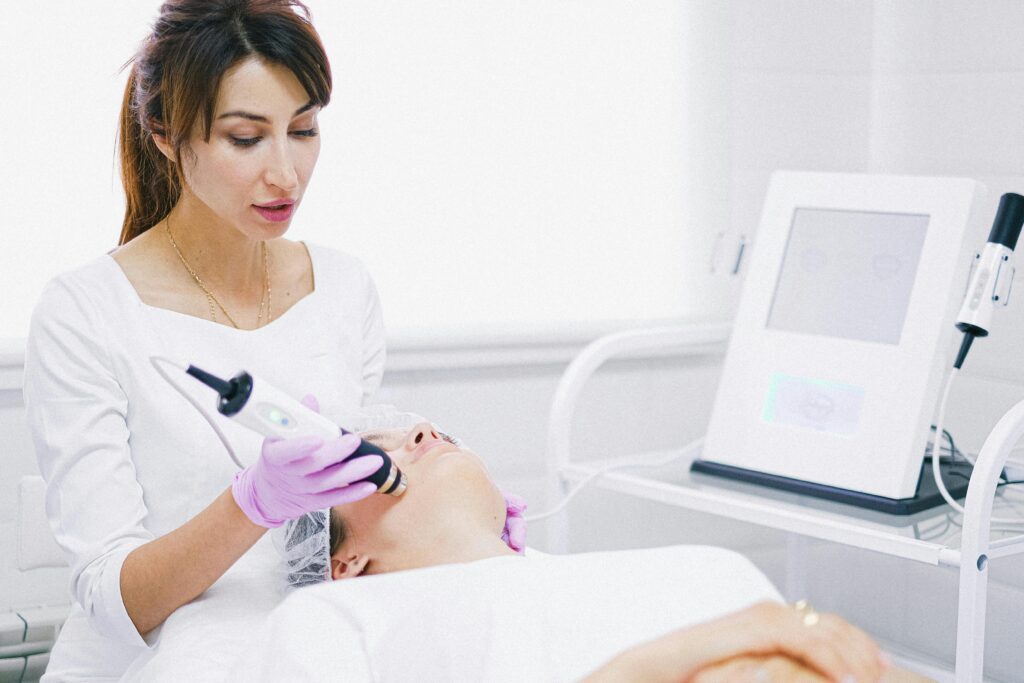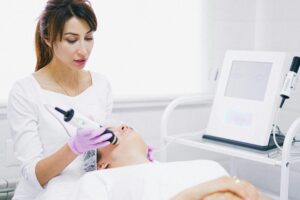Shop by Category
- Accessories
- Aspirator
- Cosmetics
- Digital Photography Systems
- Eyewear
- Footswitch/Foot Pedal
- Handpieces
- Infiltration Pump
- Laser Eyewear
- Microdermabrasion Devices
- Miscellaneous
- Portable Devices
- Skin Care Products and Make Up
- Skin Chillers
- Skin Sales Tools
- Smoke Evacuator
- Tips & Consumables
- Training & Business Tools
- User Manual/Operators Manual
- Les Encres
- Manufacturer
- Active Optical Systems
- Advalight
- Aerolase
- Aesthera
- Aesthetic Management Partners (AMP)
- Aesthetics Biomedical
- Aesthetika Lasers
- Agnes Medical
- Alma Lasers
- Artas
- Artemis
- Asclepion
- Bella Products Inc.
- BTL Aesthetics
- Buffalo Filter
- Candela
- Canfield
- Cartessa
- Cellsound Aesthetics
- Cenmade
- Cervello
- Chromogenex
- CoolTouch
- Cutera, Inc.
- Cynosure, Inc.
- Deka
- Dermasweep
- DiamondTome
- Dornier
- Dusa
- Eclipse Aesthetics
- Edge Systems
- Eleme
- Ellman
- Emage Medical
- Emvera
- EndyMed
- Energist
- Equipmed
- Erchonia
- Fisioline
- Focus Medical
- Formatk
- Fotona
- Fraxel
- HK Surgical
- HOYA ConBio
- Human Med
- Hydrafacial
- Ilooda
- Inmode Aesthetic
- Iridex
- Jeisys
- Lasering
- LaserOptek
- Laserscope / Iridex
- Lazerlenz
- Light Bioscience
- Lipo Ltd
- Lumenis
- Lutronic, Inc.
- Mattioli
- Medical Laser Technolgies
- Medicamat
- MeDioStar NEXT
- Merz
- Miramar Labs
- NeoGraft
- Noir
- Noir Laser Eyewear
- Novoxel
- Nuvolase
- Nylo Aesthetics
- Obagi Medical
- Omnilux
- Other
- Palomar Medical
- Parisian Peel
- Photo Therapeutics
- Profect Medical Technologies
- Quanta Systems
- Quantel
- RA Medical
- Radiancy
- Reveal
- RevecoMed
- Rohrer Aesthetics
- Sandstone
- Sano Laser
- Sciton, Inc.
- Sharplight
- Sincoheren
- Solta Medical
- Storz Medical
- SupraMedical
- Sybaritic, Inc
- Syneron, Inc.
- Syntech Laser
- Thermage, Inc.
- Thermi Aesthetics
- Ulthera, Inc
- Ultra Aesthetica
- Venus Concepts
- Vibraderm
- Viora
- Vivace
- Viveve
- Wontech
- Zeltiq
- Zimmer
- Procedure
- Acne Scars
- Acne Treatment
- Acoustic Radial Shockwaves
- Actinic Keratosis
- Age Spots
- Body Contouring
- Body Contouring – Diode
- Body Contouring – Hands Free
- Body Contouring – Radio Frequency
- Body Contouring – Ultrasound & Radio Frequency Combined
- Cavitation
- Cellulite Smoothing
- Cherry Angiomas
- Collagen Regeneration
- Complexion Analysis
- Dental
- Dry Eye
- Dynamic Muscle Stimulation
- Epidermal Renewal
- Erectile Dysfunction
- Face Contouring
- Face Oil Reduction
- Facial
- Facial Muscle Stimulation Treatment
- Facial Redness
- Fat & Cellulite Reduction
- Fat Grafting
- Fractional Skin Resurfacing
- Freckles
- Hair Restoration
- Hyperhidrosis
- Hyperpigmentation
- Incontinence
- Keloid Scar Treatment
- Laser Hair Removal
- Laser Hair Removal – Diode
- Laser Lipolysis
- Liposuction
- Lymphatic Massage/Drainage
- Melanin Reduction
- Melasma Removal
- Microdermabrasion
- Microneedling
- Muscle Sculpting
- Non-Invasive Hair Growth Treatment
- Non-Surgical
- Oxygen Skin Therapy
- Pain Relief
- Photodynamic Therapy
- Photofacial Rejuvenation
- Pigment Reduction
- Pigmented Lesion
- Podiatry
- Pore Minimizer – Minimize Enlarged Pores
- Port Wine Stains
- Psoriasis
- Reverse Photo-aging Damage
- RF Microneedling
- Rosacea Treatment
- Scalp Health
- Scar Correction
- Seborrheic Keratosis
- Skin Analysis
- Skin Chilling
- Skin Rejuvenation – Ablative
- Skin Rejuvenation – Non-Ablative
- Skin Rejuvenation – Sublative
- Skin Resurfacing
- Skin Tags
- Skin Tightening
- Skin Tightening – Eye Area
- Spider Veins
- Sterilize
- Stretch Marks Removal
- Sun Spots
- Surgical
- Sweat Reducer
- Tattoo Removal
- Toenail Fungus
- Transepidermal Delivery
- Ulcer/Wound Healing
- Vaginal Rejuvenation
- Vascular Lesions
- Vascular Structure
- Vein Removal
- Warts
- Wrinkle Reduction
- User Manuals
- Wavelength
- 10,600 nm (CO2)
- 1060 nm (Diode)
- 1064 nm (Diode)
- 1064 nm (Nd Yag Long Pulse)
- 1064 nm & 755 nm
- 1064 nm, 755 nm & IPL
- 1100 – 1800 nm (Infrared)
- 1319 nm (Infrared Nd Yag)
- 1320 nm (Infrared Nd Yag)
- 1400 nm (Erbium Glass)
- 1440 nm Nd Yag
- 1450 nm (Diode)
- 1470 nm
- 1500 nm (Erbium Glass)
- 1540 nm Erbium Glass
- 1550 nm Erbium Glass
- 1565nm
- 1750nm (Infrared)
- 1927 nm (Thulium)
- 2790 nm (Erbium YSGG)
- 2940 nm (Erbium Yag)
- 308 nm (Xenon Chloride)
- 532 nm (KTP)
- 532 nm / 1064 nm (KTP / Nd Yag – Q-Switched)
- 585 nm (Pulsed Dye)
- 595 nm (Pulsed Dye)
- 635 nm (Diode)
- 650-660 nm (Diode)
- 670 nm
- 680 nm (Red Diode)
- 694 nm (Ruby)
- 700 nm
- 755 nm (Alexandrite)
- 800 nm (Diode)
- 805 nm (Diode)
- 808 nm
- 810 nm (Diode)
- 850nm (Infrared)
- 900 nm (Diode)
- 980nm (Infrared Diode)
- Acoustic Wave Therapy AWT
- AFT (Advanced Fluorescence Technology)
- AMP – Active Magnetic Pulse
- CO2
- Direct Bio-Electrical Muscle Stimulation
- ElectoFusion
- EMS (Electrical Muscle Stimulation)
- HIFEM (High Intensity Focused
- IPL (Broad Spectrum)
- LED (Light Emitted Diodes)
- LIESWT – Low- Intensity Extracorporeal Shock Wave Therapy
- Multi-Wavelength
- Nitrogen Plasma
- Radio Frequency
- Radio Frequency – Bipolar
- Radio Frequency – Monopolar
- Radio Frequency – Unipolar
- Shock Wave Therapy
- TMA – Thermo-Mechanical Action
- Tripollar RF
- Ultrasound
- Ultrasound & Radio Frequency

Share this Post
Pro Tips: How to Evaluate the Condition of a Used Aesthetic Device
Introduction
In the booming world of medical spas, aesthetic devices are indispensable tools that help deliver exceptional results to clients. But high-quality new devices come with hefty price tags, often posing a significant financial burden for startup clinics or smaller operations.
This has led many to explore the used market, where one can save between 50% to 70% off the price of a new device without sacrificing quality. However, purchasing a used aesthetic device requires careful evaluation to ensure it meets safety, functionality, and value criteria. This guide aims to arm you with the knowledge to make an informed, confident purchase.

The Year of Manufacture
Newer is Often Better
When evaluating a used aesthetic device, the year of manufacture is a crucial factor. Newer devices typically have less wear and tear, making them a more reliable option. These devices likely haven’t been used as extensively, which means they are in better condition. Older devices might lack recent technological advancements or the latest software versions. Always compare the device’s features with newer models to see if it aligns with your needs.
The Pulse or Hour Count
The Mileage Equivalent
Aesthetic devices, especially medical lasers, often display a pulse count or hour count, similar to mileage on a car. A higher number indicates more extensive use, which could impact the device’s performance. Compare the pulse or hour count to the manufacturer’s expected lifespan for the device. Devices nearing their upper limit might require refurbishment, which can be costly.
Know the Costs
If you’re considering a device with high usage, ensure you know the refurbishment costs. This will help you decide if the price justifies the additional expense.
Visual Inspection
Exterior Condition
A thorough visual inspection is essential. Look for any signs of wear and tear, such as scratches, dents, or discoloration. These could be indicators of how well the device has been maintained.
Labels and Serial Numbers
Ensure all original labels, serial numbers, and branding are intact. This helps to verify the authenticity of the device and can be crucial for warranty and service purposes.
Cables and Connectors
Examine all cables, laser fibers, connectors, and ports. Look for frayed wires, kinked fibers, loose connections, or corrosion, as these can affect the device’s functionality and safety. Also inspect the delivery system including the lens to be sure the glass is free from burnt particle damage.
Functional Testing
Power On/Off
Test the device by powering it on and off. It should start up without any unusual noises or delays. This is a basic but vital check.
Interface and Controls
Ensure all buttons, switches, and touchscreen interfaces are responsive and functioning as expected. A malfunctioning interface can severely hinder device operation.
Display and Indicators
Check all displays and indicator lights. They should be clear, bright, and free of dead pixels or other display issues. This ensures you can monitor the device’s status accurately.
Performance Assessment
Output Quality
Test the device’s primary functions, such as laser output, suction, or ultrasonic waves. The output should meet the expected quality and power levels.
Calibration
Verify that the device is properly calibrated. If possible, compare its output with known standards or benchmarks to ensure accuracy.
Consistency
Run the device through multiple cycles to ensure it performs consistently. Watch for signs of overheating, lagging, or failure.
Maintenance History
Service Records
Request the maintenance and repair history of the device. Regular servicing is a good sign of a well-maintained piece of equipment.
Revealing Past Issues
Service records can reveal any operational issues the device has had and any recurring problems. This information is invaluable for assessing future reliability.
Software Updates
Check if the device’s software is up to date. Outdated software can limit functionality and may pose security risks.
Accessories and Consumables
Included Accessories
Ensure all necessary accessories, such as handpieces, applicators, and wands, are included and in good condition. Missing accessories can be expensive to replace.
Consumables
Assess the availability and condition of consumables like filters or gels. Check if they are nearing the end of their lifespan, as this can add to the cost of operation.
Documentation
Manuals and Guides
Ensure that the original user manuals, guides, and any other documentation are included. These can be crucial for proper operation and troubleshooting.
Warranty Information
Verify if the device is still under warranty or if extended warranty options are available. A warranty can provide peace of mind and reduce future expenses.
Compliance Certificates
Confirm that the device meets local regulatory and safety standards. This is especially important for medical or cosmetic devices to ensure they are safe and legal to use.
Market Research
Resale Value
Compare the asking price with similar models on the market. This ensures you are getting a fair deal and helps you understand the device’s market value.
Brand Reputation
Consider the brand’s reputation for reliability, support, and spare parts availability. Well-known brands often offer better support and easier access to replacement parts.
Professional Assessment
Third-Party Inspection
If possible, have the device evaluated by a professional technician who specializes in aesthetic devices. They can offer a more in-depth assessment than a basic inspection. Make sure they have sufficient expertise with the aesthetic device in question, as there are many different brands and types of aesthetic devices and not every technician has the required skills to service every device.
Conclusion
Evaluating the condition of a used aesthetic device is a critical process that can save you significant money and ensure you acquire a high-quality, functional piece of equipment. By following the steps outlined in this guide, you can make a well-informed decision that aligns with your business needs and financial considerations. If you’re unsure about any part of the process, consider consulting with a professional technician who can provide expert advice.
Thinking about buying a used aesthetic device? Our experts at Rock Bottom Lasers are here to help. Book a consultation today to ensure you make the best choice for your medical spa or aesthetic practice. We offer complimentary real-time video inspections of our equipment that allow you to visually inspect our devices and see them operating. We also include a 90 day warranty on all of our equipment that includes parts, labor and travel. Give us a call today at: 800-794-1097.
Author: Vin Wells, MHSA
RockBottomLasers.com
800-794-1097
